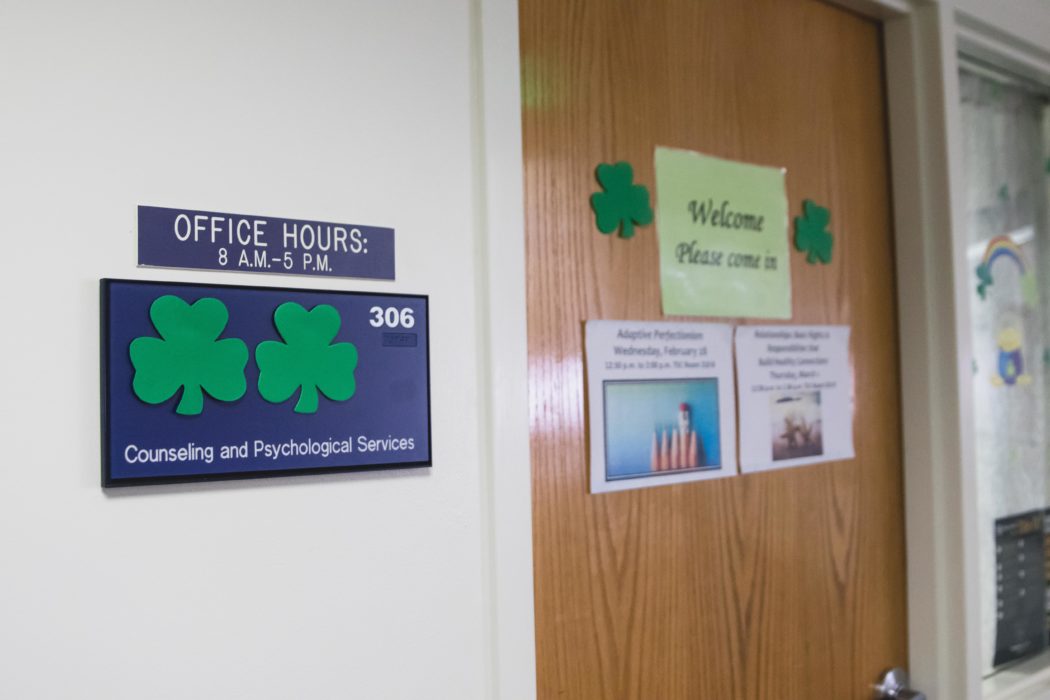CAPS still understaffed after fee increase
Utah State University’s Counseling and Psychological Services have improved since the 2017-2018 school year, said LuAnn Helms, but the demand for therapists is still not met.
Helms, the current acting director of CAPS, said that even though the student fee implemented fall 2017 has allowed for additional therapists to be hired, they are still understaffed. There have been up to 67 students on the waitlist for counseling this semester, she said. These are students who have been evaluated and recommended for therapy, but have not been able to receive the help they need yet.
“That’s really sad for our students,” Helms said of those who have been recommended therapy but haven’t been able to receive help. “We need more therapists.”

LuAnn Helms, USU Psychologist at USU Counseling and Psychological Servies in room 306 in the TSC.
USU spokesperson Tim Vitale said the CAPS fee increase, approved spring 2017 and implemented fall 2017, has allowed for three new therapists to be hired with “ongoing, permanent funding.” This includes Kim Myers, who Helms said works out of Salt Lake and is assigned to the regional campuses.
The International Association of Counseling Services recommends college campuses have one therapist to every 1,000-1,500 students. To meet this, USU would need eight additional therapists.
However, Helms said she doesn’t want waitlists to prevent students from seeking help.
“We will continue to work as hard as we can and help as many people as we can, for as long as we can,” she said. “The more people we get, the more people we can help.”
There is a therapist available every day for students who visit the CAPS office “in crisis,” Helms said. Students and faculty can also report a “student of concern” online if someone they are worried about a student’s safety or well-being. Helms said there used to be only a few reports a month, but they now receive them every day. Faculty and staff have done an “excellent job” getting students help, she said.
Helms also addressed that not every student struggling with mental health needs individual counseling. Some may benefit from attending a workshop, a couple of stress management sessions, or self-help resources, which she said they are trying to implement more of.
Vitale also stated via email that adding more therapists is “only part of the answer.”
“We need to get at the root causes of this problem, which means addressing student well-being on a number of fronts,” he said.
He said other resources at USU, including the Marriage and Family Therapy Clinic, the Psychology Community Clinic, the Student Wellness Center and the Sexual Assault and Anti-Violence Information office, can “help address problems at earlier stages, which in the end might alleviate pressure on CAPS later on.”
Additional resources for students:
https://studentconduct.usu.edu/sid/
https://rgs.usu.edu/graduateschool/mental-health/
National Suicide Prevention Lifeline: 1-800-273-8255
Crisis Text Line: Text HOME to 741741
Bear River Mental Health local crisis hotline: (435) 752-0750
@SpencerABurt

